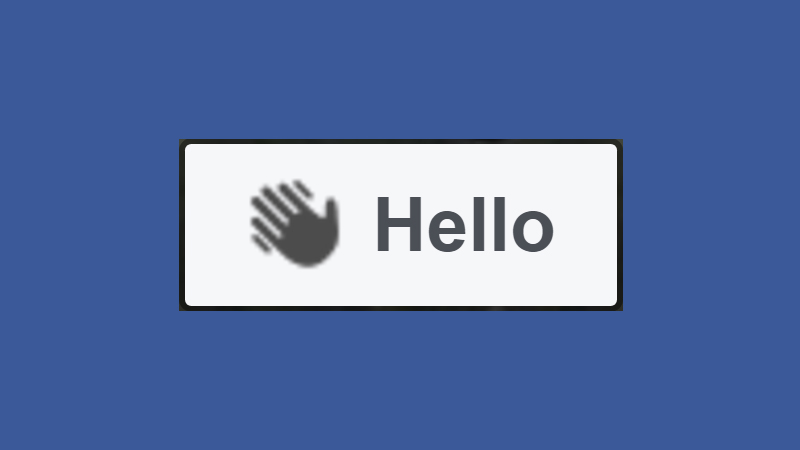Facebook, the Internet and social media giant, has silently plugged in a new “Hello” button to people’s profile page, which allows users to send a virtual wave – say Hello to someone.
The Hello feature is similar to the infamous Facebook Poke, a small application that is included with every account. The feature is there for you to say hello or to remind someone that you are waiting for a response – or just the fact that you exist!
Similarly, Hello is designed to virtually say Hello to someone unknown to you in the form of a hand wave. But the position the button is placed in might come with a huge concern for users. The button is positioned at the top of peoples’ profiles, next to ‘send a friend request.’
Facebook users are now complaining that most of the time, the Hello button gets clicked accidentally while trying to send a friend request or unfriend someone.
All it does is to say Hello to someone, which is fine and perfect but doesn’t help stalkers anymore. Many users bring their sleazy habits to Facebook – checking on their ex-partner, ex-colleague, or a person the user fancies. And, while doing, so many have hit the Hello button accidentally.
However, Facebook believes it is a new way of introducing yourself to someone virtually and helps expand your friend circle.
One user revealed: “I was stalking my managers Facebook whilst I was at work and accidentally sent a “hello”, wow never wanted to die so much in `my life.”
Thanks to Facebook for finding a way out of that as well – If someone clicks the Hello button accidentally you can quickly undo by re-clicking on the hello button before the other person has seen or accepted the “Hello” by tapping and hitting the Confirm option that pops up.
The only problem is, there’s a very fine line between stalking someone on Facebook and viewing a stranger’s profile just so you can introduce yourself.
Apart from the Hello feature, Facebook has also added emoji reactions to Messenger, and a highly advanced virtual reality environment called Spaces, which allows users to meet in a digital world rather than face-to-face.
Thanks for visiting! Would you do us a favor? If you think it’s worth a few seconds, please like our Facebook page and follow us on Twitter. It would mean a lot to us.



